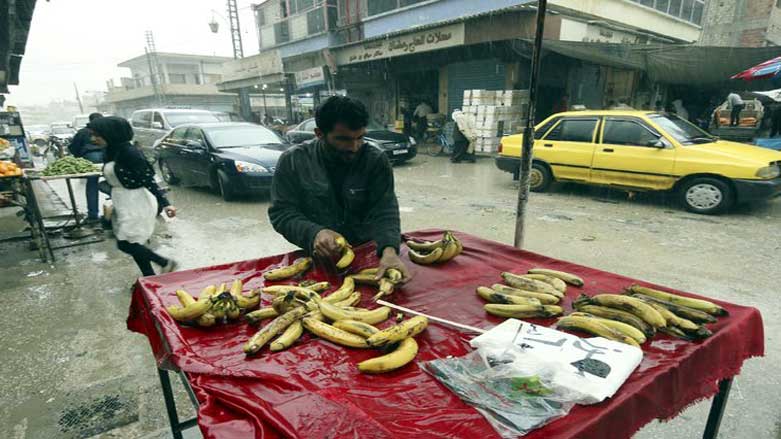Syrian currency crash doubly affects Rojava
The Syrian pound hit its lowest value since the outbreak of the country’s five-year civil war, having a multiplier effect on Syrian Kurdistan (Rojava).

QAMISHLO, Syrian Kurdistan (Kurdistan24) – On Tuesday, the Syrian pound hit its lowest value since the outbreak of the country’s five-year civil war, having multiplier effects on Syrian Kurdistan (Rojava).
A Kurdistan24 news team in Syria’s Kurdish city of Qamishlo interviewed several people and traders in the city’s markets which are suffering from a recession due to the rising prices of food and other commodities.
“The decline of the Syrian pound resulting in low revenues and the lack of job opportunities is the main reason behind the mass migrations of the Syrian Kurds from Rojava,” said Shivan Ahmad, a shopkeeper from Qamishlo.
“Before the Syrian war, the exchange rate was 45 Syrian pounds (SP) per one US dollar, but today it exceeded 600 SP per USD,” Ahmad said.
“Somebody could have bought plenty with SP 600 before the crisis, but now the same amount only buys a small piece of biscuit,” he added.
Ali Hamo, a trader from Qamishlo, said that apart from the rising prices and currency crash, Rojava is suffering from embargo as the northern borders with Turkey have been blocked since the outbreak of the Syrian civil war in 2011.
Additionally, al-Qaeda affiliated Nusra Front and the Syrian Arab rebels are fighting Rojava from the west, the Syrian government forces and the Islamic State (IS) from the south, and the border-crossing with the Kurdistan Region is closed from the east.
“This is a total economic blockade that made the markets all empty, suffering from a weak purchasing power for many people who have spent their savings,” Hamo said. “Also unemployment is an issue since many companies have shut down because of the war.”
However, some towns and agricultural areas are still resisting the currency collapse, like Amuda in the northeast of Syria on the Turkish border.
Khaled Abdi, a 38-year-old Syrian Kurdish farmer from Amuda, said that Kurds are engaged in livestock breeding and vegetable planting to meet the daily needs of people. Local products are offered with suitable prices.
Reporting by Hisham Arafat
Editing by Karzan Sulaivany and Ava Homa